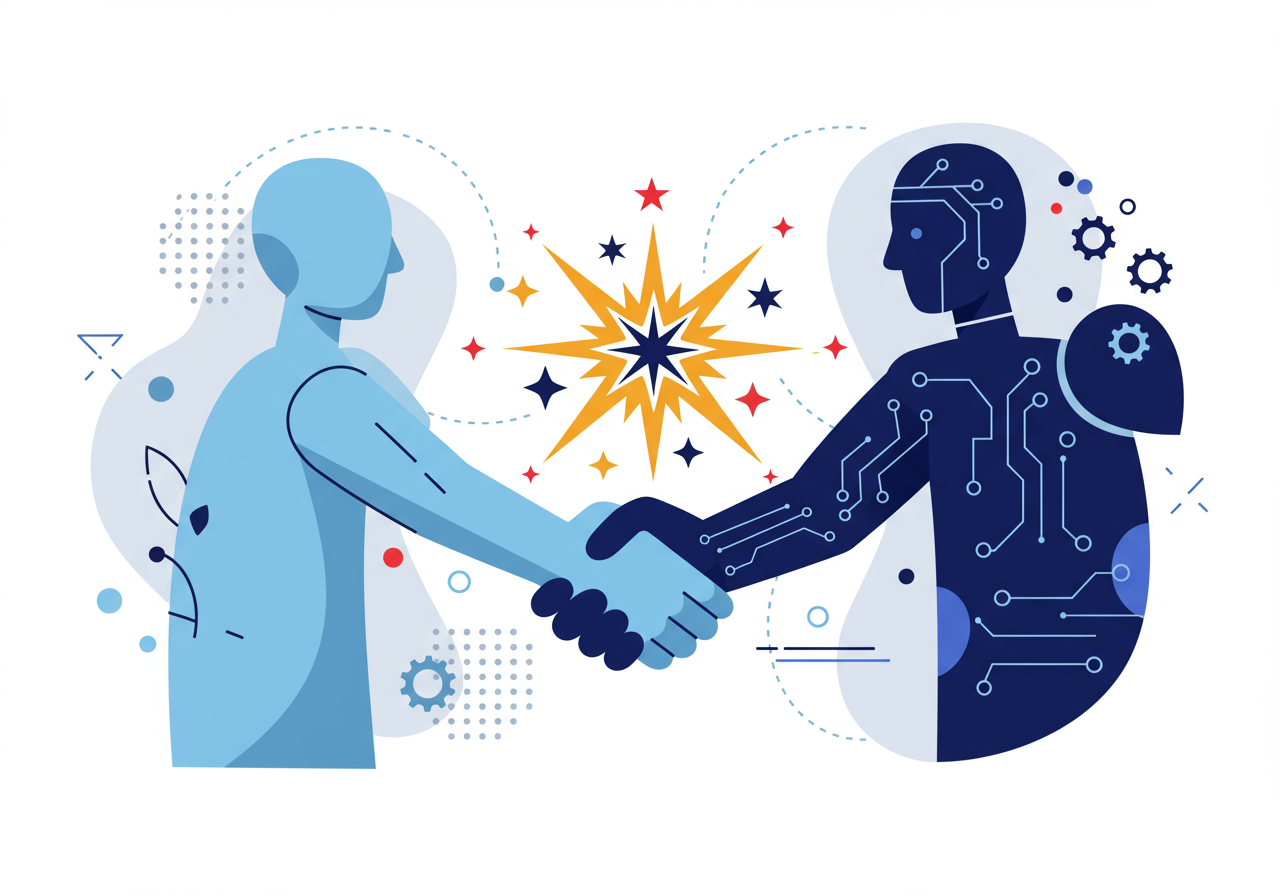Sales AI Intelligence vs. ChatGPT
Why Generic AI Won't Transform Your Revenue
Estee Woods
VP of Marketing

Your sales team is already using AI. The question is whether they're using the right kind. While 73% of sales professionals report using AI tools in their daily workflows, most are relying on consumer platforms like ChatGPT that were never designed for enterprise sales environments. The result? Productivity gains that come at the cost of security, compliance, and competitive advantage.
The Enterprise vs. Consumer AI Divide: More Than Just Features
Consumer AI platforms like ChatGPT operate on a fundamentally different model than enterprise sales intelligence solutions. Consumer AI is designed for general knowledge work, creative tasks, and broad problem-solving across diverse use cases. Enterprise Sales AI Intelligence, by contrast, is purpose-built for revenue generation within secure, controlled environments.
The distinction matters more than you might think. When your sales reps use ChatGPT to research accounts, craft email sequences, or analyze competitor positioning, they're inputting your most sensitive strategic information into systems designed to learn from user interactions. Your account strategies, pricing intelligence, and competitive insights become part of a broader dataset that could theoretically influence responses to other users, including your competitors.
Enterprise Sales AI Intelligence solutions operate within your existing security framework, integrating directly with your CRM and maintaining complete data isolation. Every interaction stays within your organization's control, ensuring that your competitive intelligence remains exactly that—competitive.
Five Critical Questions Every CRO Asks About Sales AI Intelligence Implementation
1. "How do we maintain data security and compliance?"
This question reveals the fundamental limitation of consumer AI for enterprise sales. Generic platforms operate outside your security perimeter, often storing and learning from user inputs. Sales AI Intelligence solutions maintain complete data isolation within your existing security framework.
2. "Will this actually integrate with our existing tech stack?"
Native Salesforce integration isn't just convenient—it's transformative. When AI operates within your CRM, it has complete context about deals, relationships, and historical performance. Consumer AI tools require manual data input and context-setting for every interaction, creating friction that ultimately undermines long-term success.
3. "How do we prevent competitive intelligence leakage?"
Perhaps the most underestimated risk of consumer AI usage in sales environments is the potential for strategic information exposure. When sales teams input account strategies, pricing information, or competitive positioning into public AI platforms, they're essentially sharing intelligence with systems that could make that information available to others, including competitors.
4. "What's the difference in actual capability between generic and purpose-built AI?"
Consumer AI provides broad, general responses that require significant customization for sales contexts. Solutions specifically for sales are trained specifically on sales methodologies, industry best practices, and revenue-generating activities, providing immediately actionable insights without additional interpretation.
5. "How do we ensure consistent methodology across our entire sales organization?"
Generic AI tools can't enforce your specific sales process, messaging, or methodologies. Purpose-built sales AI intelligence integrates proven frameworks directly into every interaction, ensuring consistency of your workflows, while reducing content switching between tools.
Integration Reality: Native vs. Standalone
The integration question ultimately determines long-term success. Standalone AI tools, regardless of capability, create data silos and require constant context-switching. Sales reps must manually input account information, copy results back into CRM systems, and maintain context across multiple platforms.
Native Salesforce integration transforms AI from a productivity tool into a revenue intelligence platform. With complete access to historical deal data, relationship mapping, and performance metrics, integrated AI provides insights that standalone tools simply cannot match.
Consider the difference in analyzing a major account opportunity: Consumer AI requires manual input of account history, stakeholder information, and competitive landscape details for every analysis. Native AI already has complete context and can immediately provide strategic recommendations based on similar successful deals within your organization.
The Strategic Imperative: Security Meets Performance
The choice between consumer and enterprise AI isn't just about features or user experience, it's about competitive positioning. Organizations that rely on consumer AI for strategic sales activities risk exposing their most valuable intelligence while missing the compound benefits of truly integrated AI systems.
Your sales team will use AI regardless of policy decisions. The question is whether they'll use secure, enterprise-grade solutions that amplify your competitive advantage, or continue with consumer tools that create security risks while delivering plateau results.
The organizations winning with sales AI intelligence aren't just using better tools—they're using tools that integrate seamlessly into their competitive strategy while maintaining complete control over their most valuable asset: customer and competitive intelligence.
Next Steps: From Generic to Strategic
Moving beyond consumer AI requires a strategic approach that addresses both immediate productivity needs and long-term competitive positioning. The most successful transitions focus on providing better alternatives rather than simply restricting existing tools.
Start with a clear assessment of current AI usage across your sales organization. Identify the specific use cases driving adoption, then map those needs to enterprise-grade solutions that provide superior results within secure, integrated environments.
The future of sales isn't just AI powered—it's strategically AI integrated. Organizations that make this distinction will find themselves not just more productive, but more competitive in an increasingly AI-driven marketplace.


